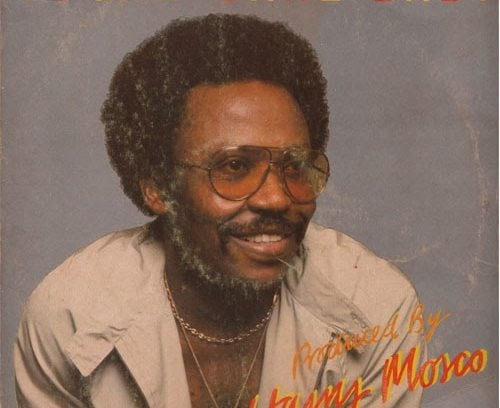For colleagues of the late music icon and the chattering crowd that thronged the Household of God church at Ikeja, Lagos for his valedictory, news of Harry Moscow’s death had come as a bolt from the blue.
The last that had been heard of the legendary lead guitarist of the Funkees was that he had been flown alongside Chike Agada, his son, to Egypt for an undisclosed yet critical illness.
“Harry Moscow was a good colleague. It’s a privilege for Chris Okotie, Patrick Doyle and I to host this service in honour of a great Nigerian music star…,” Tony Okoroji, chairman of the Copyright Society of Nigeria (COSON), yelled with a solidary edge to his voice as he motioned for flaming candles to be held high.
Candle flames flickered. Wax dripped amid the macabre silence of the dimly lit evening as fans beheld the Afrofunk star who, despite his raving popularity at the time, couldn’t defy nature’s authoritative call.
Prior to military assaults and the definitive flares of conflict that marked the end of the civil war, Moscow had led his then soul band and mounted the stage in the besieged town of Nkwerre, within the secessionist territory, and drowned out strafings and the doom-bearing advancement of federal forces.
The virtuoso axeman, whose team hypnotized the eastern region with beats of their music, was profoundly passionate about the art such that he turned his band over to federal forces, a daring stunt which eventually landed his team in Enugu to raise the spirits of locals who feared execution after the war ended.
Leading the Funkees through the thick and thin and performing in Aba clubs, shows and nightspots, Mosco’s musical skills gained traction so much so that his team’s influence was felt in the west.
The year 1973 saw Moscow and his team jetted to London for a month’s show, one which later spanned two; three; four years, and had the team’s popularity nosedive before they eventually returned to Nigeria to be greeted by their worst nightmares.
Key members of his team quit without explanation; financial pressure intensified. Moscow and the rest of the Funkees had to sell their instruments for a return ticket to London.
But, even amid the back-breaking challenges that eventually discombobulated the once renowned Afrofunk band, Mosco deftly defied the odds and carved out a successful solo career for himself.
Shortly after he had leveraged on the label support of G.A.D Tabansi, Nigerian businessman, Mosco’s next two albums were a massive success. He came to be known for his ‘Country boy’ and ‘Sugar Cane Baby’ albums released in 1978 and 1982 respectively.
However, his life thereafter was a tale of wax and wane. Although the quip cliche that “the limelight doesn’t last forever” can be said to have relatively applied, Mosco’s plight started after Arthur Nzeribe, Imo state politician, allegedly coveted his beloved wife who dumped him and took custody of their two kids.
For a pop star who appeared to have been gradually drifting towards the inevitable dusk of his music career, the odds which Mosco had earlier defied bared its fangs ruthlessly so much so such that Mosco’s finances steeply plummeted.
He was evicted from his Lagos home after he was unable to pay his rent. For a man of his personage, moving to Akute Ghetto, in the same city, and his immediate family’s utter abandonment of him seemed to have exacerbated his plight.
Desperate to salvage his dwindling reputation, Mosco severally attempted a musical comeback to no avail. He was shattered. His once lucrative studio business crashed. Mosco continued living from hand to mouth and later developed diabetes and chronic arthritis.
Chike Agada, his son, on graduation from law school, eventually traced Mosco to his Akute home where the duo had a tearful reunion. Mosco was afforded the needed medical attention but died in 2012 in Cairo, capital of Egypt — never able to fathom her daughter’s outright rejection of him.
Copyright 2025 TheCable. All rights reserved. This material, and other digital content on this website, may not be reproduced, published, broadcast, rewritten or redistributed in whole or in part without prior express written permission from TheCable.
Follow us on twitter @Thecablestyle


He had three other grown children who he abandoned and at death tried to mend fences.